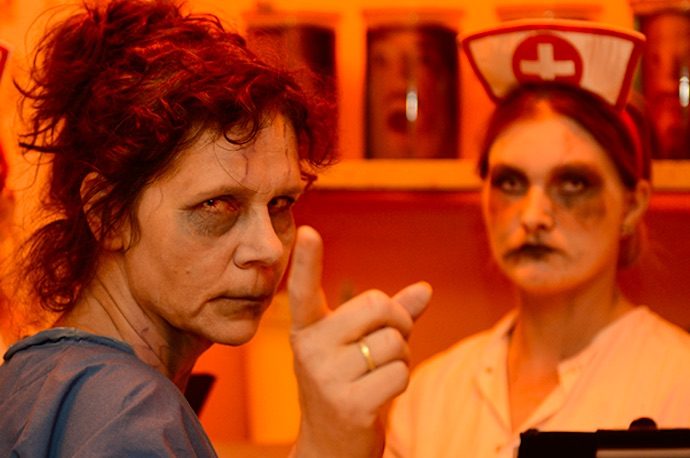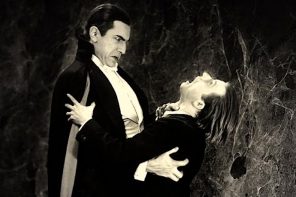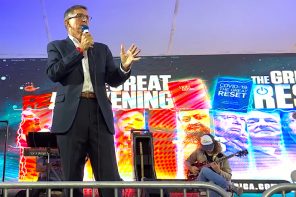What inspired you to write Why Horror Seduces?
The book is based on years of research, but it grows out of personal curiosity and fascination. What’s with all the monsters and scary stories in popular culture? Surely, an anthropologist on visit from another galaxy would scratch its tentacled head in puzzlement over the amount of energy and time members of our species put into frightening themselves and each other. I’m interested in the paradox of horror, the bizarre fact that many of us voluntarily seek out the kind of entertainment that’s designed to evoke negative emotions in us—from disgust, fear, and anxiety, to dread—and I think an evolutionary perspective helps to dissolve that paradox. We evolved to find pleasure in vicarious experience with threat scenarios, and that’s what horror gives us.
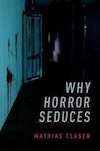
Why Horror Seduces
Mathias Clasen
Oxford UP
Halloween, 2017
What’s the most important take-home message for readers?
I think there are two important take-home messages: One, horror entertainment isn’t just mindless junk. No, the horror genre is ancient and universal, and horror stories serve important psychological, social, and moral functions for us. They give us insight into the darker extremes of our emotional register; they teach us about the vicissitudes of life and the complexities of psychology and sociality; and they provide moral calibration and help us grapple with notions of good and evil. They help us plug into our culture and connect with our humanity.
The other take-home message is that we can’t really make sense of horror without taking into account evolved and adapted human nature. Humanists have traditionally focused only on culture and context in their attempts to explain literature and films and so on, but we really have to take human biology seriously. Culture grows out of, and is constrained by, biology. That goes for horror entertainment too. Horror is enabled and constrained by human nature. If we weren’t fearful, imaginative creatures we’d have no horror stories—and if we want to understand why we are fearful, imaginative creatures, we have to get a fix on our evolutionary history and the biological forces that shaped our nature. So, my take-home messages are these: Let’s take horror seriously, and let’s take our own biological heritage seriously, because that heritage helps explain how and why scary entertainment works.
Is there anything you had to leave out?
Oh, plenty. I didn’t want the book to be too long, but it pains me that I had to leave out some of my favorite authors and works—for example, Ghost Story by Peter Straub. It’s a wonderful, clever monster of a genre-savvy Gothic horror novel. Or [the Joss Whedon-produced] The Cabin in the Woods, one of my favorite horror films. Or It Follows. Or The Haunting of Hill House by Shirley Jackson, one of the most disturbing haunted house stories of all time. Or one of Robert McCammon’s horror novels from the 1980s, maybe The Wolf’s Hour or Mystery Walk. I’m currently reading my way through his oeuvre. McCammon’s horror writing is brilliant—evocative and touching and sometimes deeply disturbing, sometimes utterly awe-inspiring. I would’ve loved to have included an interpretive chapter on one of his novels. Maybe in another book.
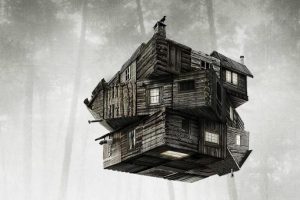
Image from promotional materials for The Cabin in the Woods (Lionsgate, 2012).
What are some of the biggest misconceptions about your topic?
Well, both the subject and the approach seem to attract misconceptions like rotting zombies drawn to fresh meat.
There’s a good deal of cultural prejudice toward horror. It’s not that there isn’t a lot of bad horror out there—there is, a lot of horror is aesthetically void and/or morally despicable—but there’s also excellent stuff, horror novels and horror films that are just as accomplished, just as artful, as critically celebrated mainstream literature and film. Leaving the good stuff out of the picture and condemning or ignoring a whole genre, as some critics and scholars do, is just ridiculous. It’s narrow-minded at best, intellectually dishonest at worst.
And the approach, the evolutionary perspective, often meets with obstinate ideological resistance in the humanities. Some folks feel that culture has nothing to do with biology, that you can’t say anything interesting about literature or film from an evolutionary perspective, or that an evolutionary perspective by definition entails biological reductionism or determinism. That’s just wrong. Narrow-minded, misconceived. Evolutionary social science has advanced tremendously over the last couple of decades, and humanists ought to pay attention. We now know a lot about human nature and about the complex interplay between biology and culture, and these findings have major consequences for the study of imaginative culture such as literature and film.
Did you have a specific audience in mind when writing?
Yeah, an intelligent and curious lay audience, in particular, anybody interested in the mechanics of horror and in the evolutionary underpinnings of imaginative culture.
Are you hoping to just inform readers? Entertain them? Piss them off?
Primarily inform them, tell them about the exciting stuff I’ve discovered in my research. If I manage to occasionally entertain them, that’s great, but I didn’t set out to do that. I do hope my enthusiasm for the subject carries across, though. I imagine some readers might be pissed off by some of my claims, or because I left out their favorite horror writer or director or whatever. But that’s life in the big city. I’m hoping most readers will approach the book with an open mind and that they will learn something interesting and worthwhile about horror and about human nature. I’m also hoping that the book might inspire other horror scholars to adopt an evolutionary perspective.
What alternative title would you give the book?
Actually, the title I suggested was Fear for Your Life: Evolution and Modern American Horror. A friend of mine came up with that and I liked the pun in the first part of the title, but the press, Oxford UP, wanted something more snappy, and so they suggested Why Horror Seduces. They had the right idea. It is snappy. I like it.
How do you feel about the cover?
I love the cover. I took that picture myself (with my cell phone), and the press did a great job with the layout. The picture is of a hallway in Dystopia Haunted House, a big haunted attraction in Denmark. I’m doing some scientific consulting for them and have also done two large-scale quantitative research projects on recreational fear in the haunt, so it seemed only appropriate to use an image of one of their sets. It’s atmospheric, I think, disturbing and suggestive at the same time. There’s a faint light at the end of that hallway. But do you want to go there? Are you willing to pass that door, and whatever’s behind it, in search of enlightenment? It strikes me as a neat visual metaphor for what horror has to offer.
Is there a book out there you wish you had written? Which one? Why?
My two idols in the field of non-fiction would be Joe Carroll, a literary scholar, and Steven Pinker, an evolutionary psychologist. They have quite different styles, but I admire them both and try to emulate them—Carroll’s rigor in composition, the care and precision with which he writes, his dry wit, and Pinker’s air of genial intelligence, the way in which he explains complex subject matter clearly and with good humor. I admire especially Carroll’s Reading Human Nature and Pinker’s The Blank Slate. I also think any writer—literary, non-fiction, academic, whatever—should read Stephen King’s On Writing, his big book on composition.
What’s your next book?
I don’t know yet. I have a long-standing interest in post-apocalyptic fiction and might take a stab at that, but I’ve also long dreamt of doing a book on Stephen King, my favorite author. For the time being I’m focusing on scientific articles. I’m finishing up some big research projects and need to focus on them before I take on another book project.


